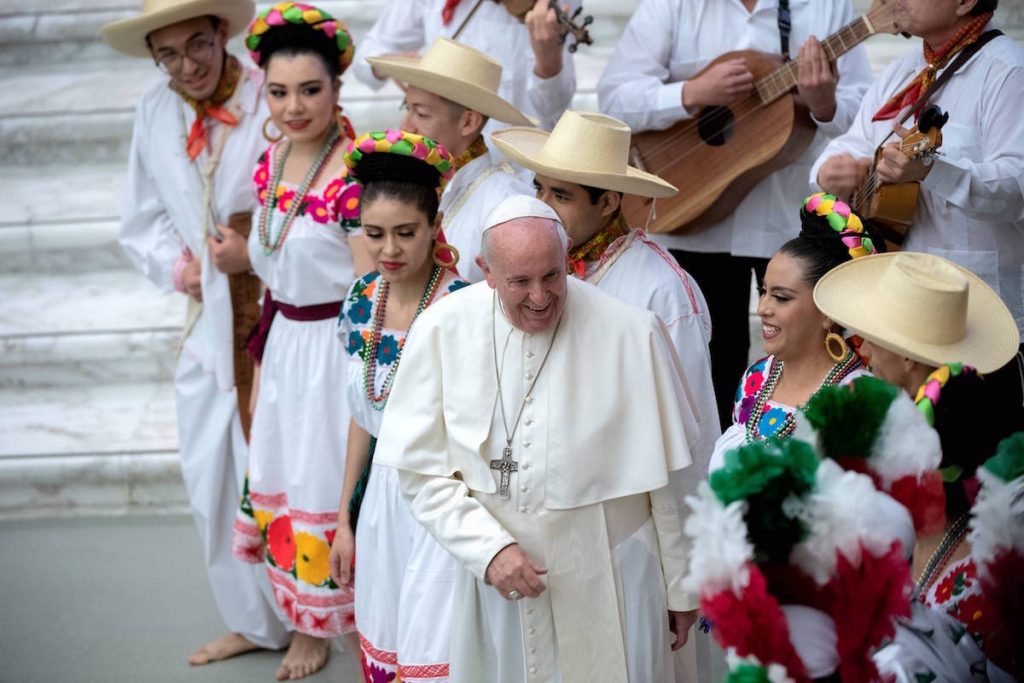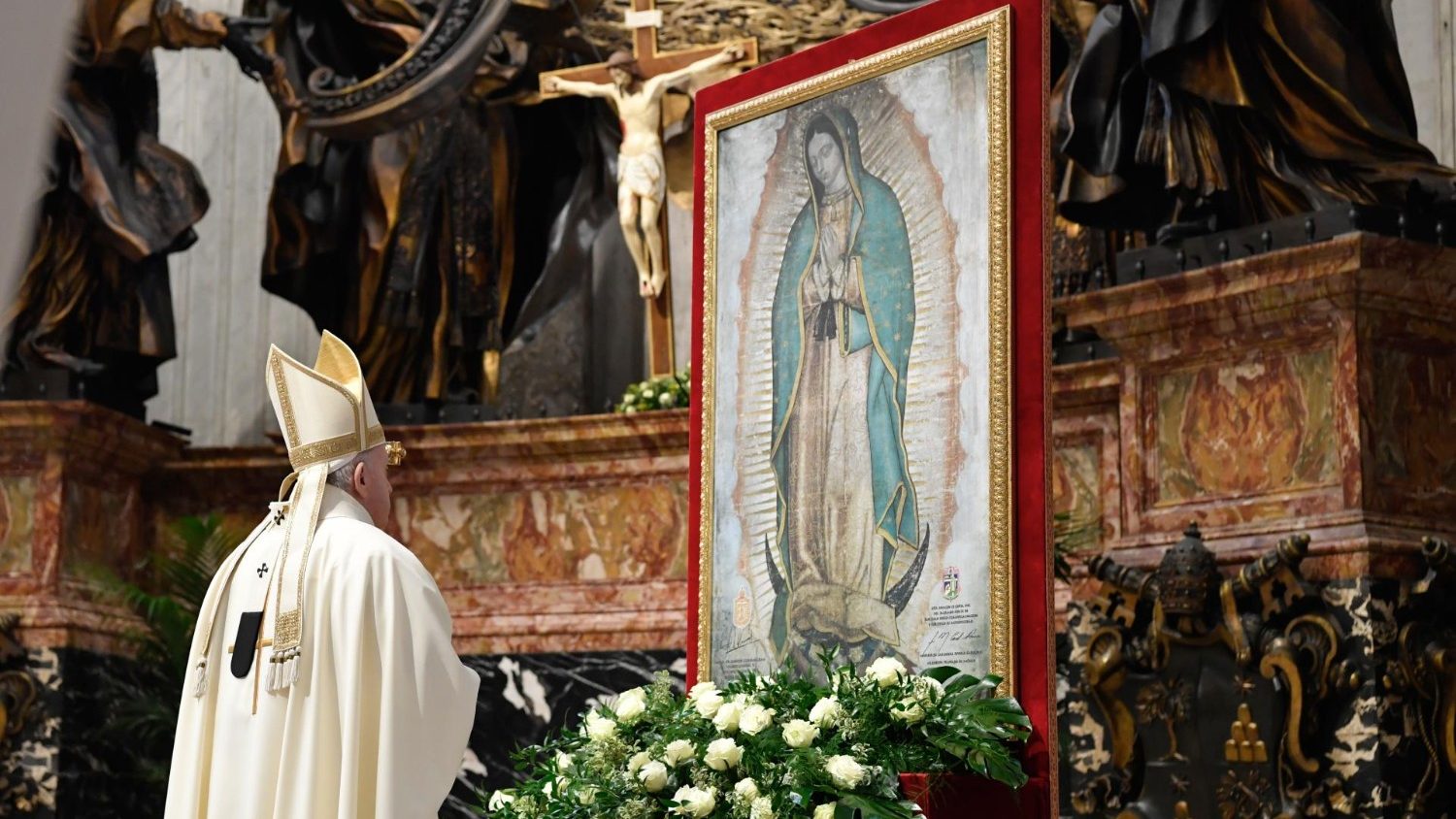Pope Francis highlighted “very painful errors” committed in the past as he marked the 200th anniversary of Mexico’s independence.
In a letter addressed to Archbishop Rogelio Cabrera López, president of the Episcopal Conference of Mexico, the pope said he hoped that the anniversary would be an “occasion to strengthen our roots and reaffirm the values that build the nation.”
“In order to strengthen our roots, it is necessary to reread the past, taking into account both the lights and shadows that have forged the country’s history. This look back necessarily includes a process of purifying memory, that is, to recognize the very painful errors committed in the past,” the pope wrote.
“For this reason, on various occasions, both my predecessors and I have asked forgiveness for personal and social sins, for all the actions or omissions that did not contribute to evangelization.”
Mexico’s President Andrés Manuel López Obrador wrote a letter to Pope Francis on Oct. 2, 2020, appealing for a public apology from the Catholic Church concerning atrocities committed against the indigenous population after the Spanish conquest of the Aztec Empire in 1521.
Two hundred years ago, on Sept. 28, 1821, the Declaration of Independence of the Mexican Empire from the Spanish Empire was ratified.
The day before, the Army of the Three Guarantees arrived in Mexico City, ending the Mexican War of Independence that broke out in 1810.
The three guarantees were that the Mexican Empire would be Catholic, independent, and unified. The guarantees were reflected in the Army’s white, green, and red flag.
The 1824 Constitution of Mexico “permanently” enshrined Catholicism as the country’s official religion. But it was replaced in 1857 by a liberal constitution limiting the Church’s rights, which was itself replaced in 1917 by a constitution severely restricting the Church’s role in Mexico, sparking a civil war.
In his letter, dated Sept. 16, the pope alluded to anticlerical violence, saying that “neither can we ignore the actions that, in more recent times, were committed against the Christian religious sentiment of a great part of the Mexican people, causing profound suffering.
He added: “But we do not evoke the pains of the past to stay there, but to learn from them and to continue taking steps to heal the wounds, to cultivate an open and respectful dialogue that respects differences, and to build a much-desired fraternity, prioritizing the common good over particular interests, tensions, and conflicts.”

US President Joe Biden sent a message, also dated Sept. 16, marking the bicentenary.
“On behalf of the government and people of the United States of America, I congratulate Mexico and its people as you celebrate 200 years of independence,” he wrote.
“On this occasion, we join you in remembering Mexico’s road to independence, and reflect on the long and shared history of our two countries.”
In his letter, Pope Francis looked ahead to the 500th anniversary of the apparitions of Our Lady of Guadalupe, which will fall in 2031.
The first Latin American pope, who visited Mexico in 2016, recalled an episode in 1810 in which the Catholic priest Miguel Hidalgo, known as the Father of the Nation, took an image of Our Lady of Guadalupe from a shrine in the Mexican province of Guanajuato and adopted it as the banner of the independence movement.
“In this commemoration,” the pope wrote, “it is beautiful to remember that, as expressed by the Episcopal Conference of Mexico on the occasion of the 175th anniversary of national independence, the image of the Virgin of Guadalupe taken by Fr. Hidalgo from the Shrine of Atotonilco symbolized a struggle and a hope that culminated in the ‘three guarantees’ of Iguala printed forever in the colors of the flag.”
The pope was referring to the Iguala Plan, issued by the army general Agustín de Iturbide in 1821, which proclaimed the “three guarantees.”
Reflecting on the apparitions of Our Lady to Juan Diego in December 1531, Pope Francis said: “Mary of Guadalupe, la Virgen Morenita, addressing herself in a particular way to the smallest and neediest, favored brotherhood and freedom, reconciliation and the inculturation of the Christian message, not only in Mexico but in all the Americas. May she continue to be for all of you the sure guide that leads you to communion and full life in her Son Jesus Christ.”
The pope concluded his message: “May Jesus bless all the sons and daughters of Mexico, and may the Holy Virgin watch over you and protect you with her heavenly mantle. And please do not forget to pray for me.”






